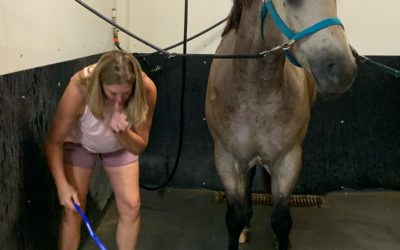8 Cognitive Functions of Personality Type
8 Cognitive Functions of Personality Type
Your Super Power in Personality Type
As defined by Myers-Briggs, there are 16 Personality Type. Of those 16 types, there are 8 dominant functions. Everyone uses all 8 functions but our type determines our ability to use each function. Two will serve as our strengths & two will serve as our weaknesses or blind spots. The remaining 4 are our “Shadow Functions”, in our unconscious, and are often displayed during stress. All 8 functions are equally valuable.
Eight cognitive Functions
- Extraverted Sensing (SE)
- Introverted Sensing (SI)
- Extraverted Intuition (NE)
- Introverted Intuition (NI)
- Extraverted Thinking (TE)
- Introverted Thinking (TI)
- Extraverted Feeling (FE)
- Introverted Feeling (FI)
Everyone has one favorite function among the four mental functions (S, N, T or F)
Everyone uses that favorite function in their favorite (Extraverted or Introverted) world.
This is what determines our Dominant Function
Enjoy the upcoming articles explaining each of these
“Super Hero Powers”.
|
Extraverted Sensing ESTP ESFP Responders “Act & Adapt” |
Extraverted Intuition ENTP ENFP Explorers “Innovate & Initiate” |
Extraverted Thinking ESTJ ENTJ Expeditors “Direct & Decide” |
ESFJ ENFJ Contributors “Communicate & Cooperate” |
|
ISTJ ISFJ Assimilators “Specialize & Stabilize” |
INTJ INFJ Visionaries “Interpret & Implement” |
ISTP INTP Analyzers “Examine & Evaluate” |
Introverted Feeling ISFP INFP Enhancers “Care & Connect” |
More From Michele
Extraverted Sensing (SE)
Extraverted Sensing (SE) ESTP - ESFP"What IS" The function when we are focusing our attention on the real and present world, using our 5 senses. For example:Listening to a dog bark. When our brain focuses on the sound of the dog barking, it is exercising...
Eight Cognitive Functions of the MBTI
The 16 MBTI types can be simplified into 8 Cognitive Functions Important to remember: Everyone uses all 8 functions Our type determines our ability to use each function 2 will serve as our strengths 2 will serve as our weakness or blind spots The remaining 4 are our...
Importance of Non-Verbal Communication
The other day while I was grooming my horse, it hit me how important non-verbal communication is. In the words of Keith Whitley, There is so much that is being said “when you say nothing at all”. There is so much trust, loyalty, vulnerability, and even communication...



